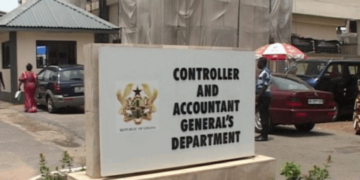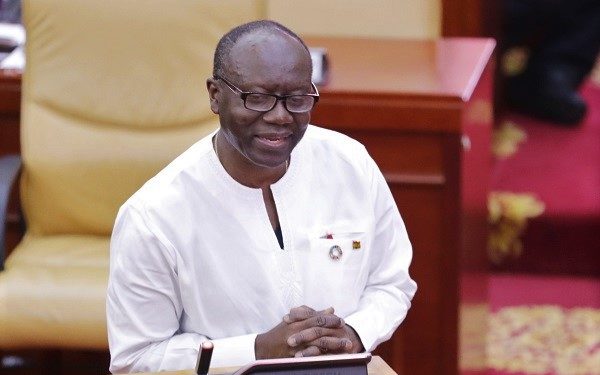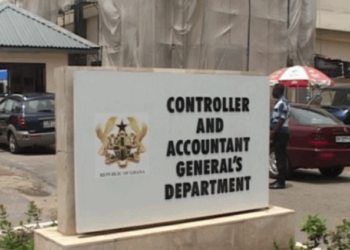The government has concluded extensive consultations with key stakeholders on the electronic transactions levy (E-Levy) to help build consensus around the passage of the revenue measure.
It has also secured the blessing of telecommunication companies (telcos) on the levy in the spirit of burden sharing, which has caused the firms to agree to shave off 0.25 percent of their charges to make way for the implementation of the tax meant to rake in GH¢6.9 billion in 11 months.
The Minister of Finance, Mr. Ken Ofori-Atta, who disclosed this at a press conference in Accra last Wednesday, said following the conclusion of the consultations, the E-Levy Bill would be re-submitted to Parliament when sitting resumed next Tuesday.
“We look forward to joining hands with our Honourable Members of Parliament (MPs) to approve the E-Levy on a consensus basis, so we can collectively address the big issue of unemployment,” he said.
The press conference afforded the minister and the government the opportunity to update the public on the E-Levy impasse and also respond to the latest downgrade in the creditworthiness of the economy by the international ratings agency, Fitch.
Intimate conversations
Flanked by his two deputies, Dr. John Kumah and Mrs. Abena Osei Asare, and the Minister of State at the Ministry of Finance, Mr. Charles Adu Boahen, Mr. Ofori-Atta said the consultations involved Parliament, representatives of faith-based organizations (FBOs), the banks, the Chamber of Telecommunications and civil society organizations (CSOs).
They also included smaller intimate conversations with the citizenry across a few constituencies.
“The various concerns have been heard and we have found a way to address those concerns without an adverse fiscal impact. True to the spirit of burden sharing, the telcos have agreed to reduce their charges by 0.25 percent to reduce the overall net impact of the levy on subscribers,” he said.
“We want to take this opportunity to thank our friends in the telecom industry. We believe that by this measure, we can raise the requisite resources to bolster our fiscal position, while keeping an eye on transaction costs and consumer welfare, reducing the impact on the average Ghanaian and keeping the resources required for our growth agenda,” he added.
Sensitization
The minister also said a team of ministers, led by him and other key members of the government, would embark on a public engagement and sensitization campaign across the country on the levy to help explain its importance to the populace.
He said since last month, he had been engaging people at the grassroots on the E-Levy and other issues in the social and economic sector.
He said the new round of public engagement, which started yesterday, was to enable the government to “communicate clearly on the proposed mechanics of the E-Levy and its potential benefits to the people of Ghana within the spirit of burden-sharing that must guide us in our development efforts as we move Ghana Beyond Aid”.
Mr. Ofori-Atta described the E-Levy as a necessary tool to increase Ghana’s tax-to-gross domestic product (GDP) ratio from around 13 percent to 16 percent.
He said it was also a credible measure to ensure that all Ghanaians contributed their quota to the economic recovery that was currently underway.
“The E-Levy will not only ensure that we move towards a more sustainable debt level but also ensure that we have the revenue to sustainably invest in entrepreneurship, youth employment, cyber security, digitalization, and road infrastructure.
“The E-Levy also provides a means for all Ghanaians to help support their country and grow this economy as compliant citizens giving to Caesar what belongs to Caesar,” he said.
The E-levy was announced in the 2022 Budget as a new measure to mobilize revenue from the transfer of funds through electronic means.
The bill on the levy seeks to impose a 1.75 percent charge on a daily transfer exceeding GH¢100.
It exempts transfers between accounts owned by the same person, transfers for the payment of taxes, fees, and charges on the Ghana.gov platform, electronic clearing of cheques, specified merchant payments, including payments to commercial establishments registered with the Ghana Revenue Authority (GRA) for income tax and value-added tax (VAT) purposes and transfers among principal, master agent and agent accounts.
Imminent risk
Turning his attention to concerns over the fiscal situation, especially debt levels, the Finance Minister said while it was true that the economy was undergoing challenges, there was no cause for concern.
He said contrary to other assessments, the economy would continue to get stronger.
“The concerns of our citizens and the rating agencies are on revenue mobilization, lack of access to international finance markets, and our E-Levy impasse. We shall overcome these.
“Similar to most economies, we are emerging from the devastating impact of the COVID-19 pandemic. In spite of this, we do not face any imminent external imbalance. We have over five months of import cover, which is well above our internal target of four months and better than the average over the previous two decades,” he said.
Read Also: GES releases appointment letters of 1000 newly recruited teachers
SOURCE: GRAPHIC ONLINE
























